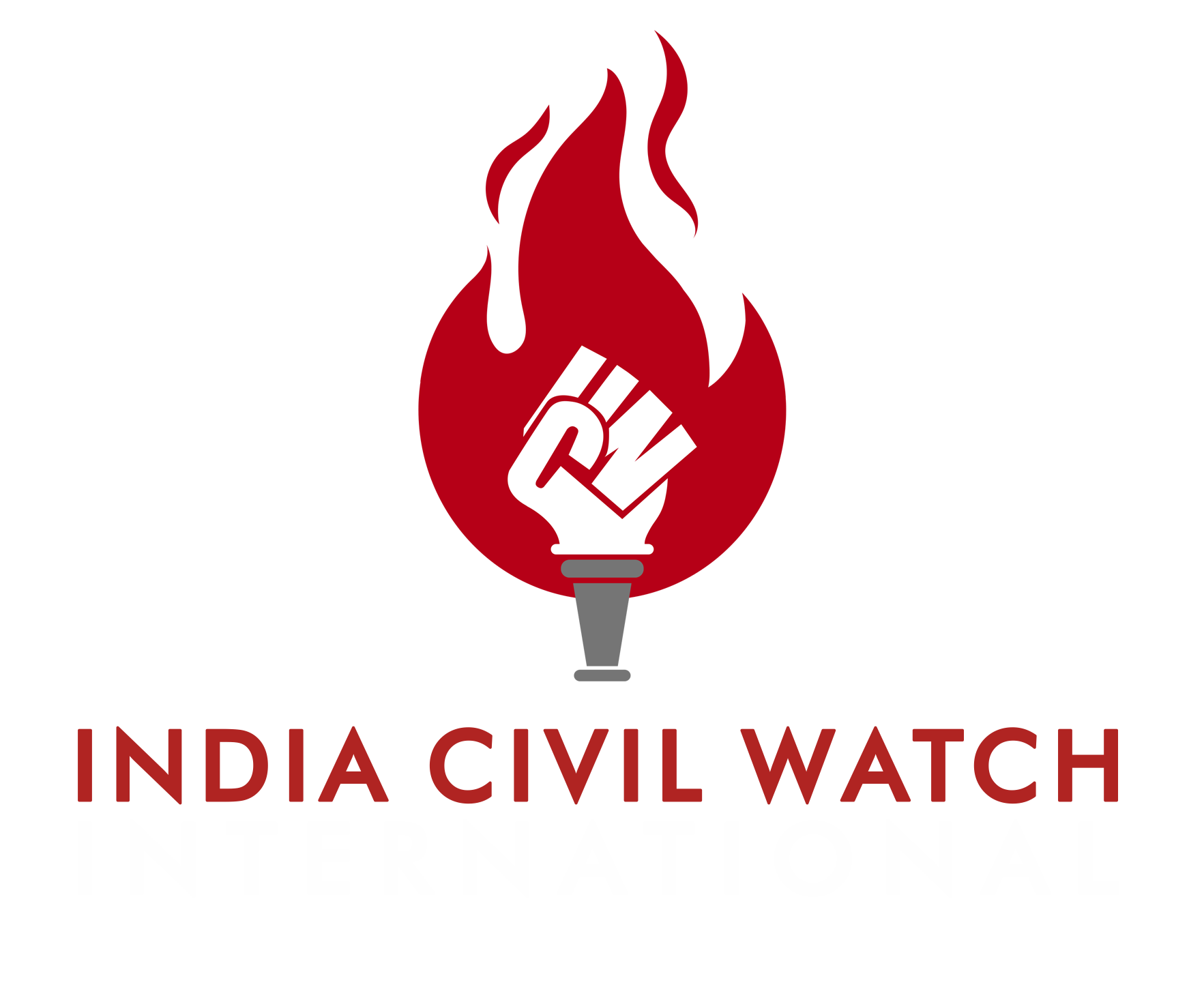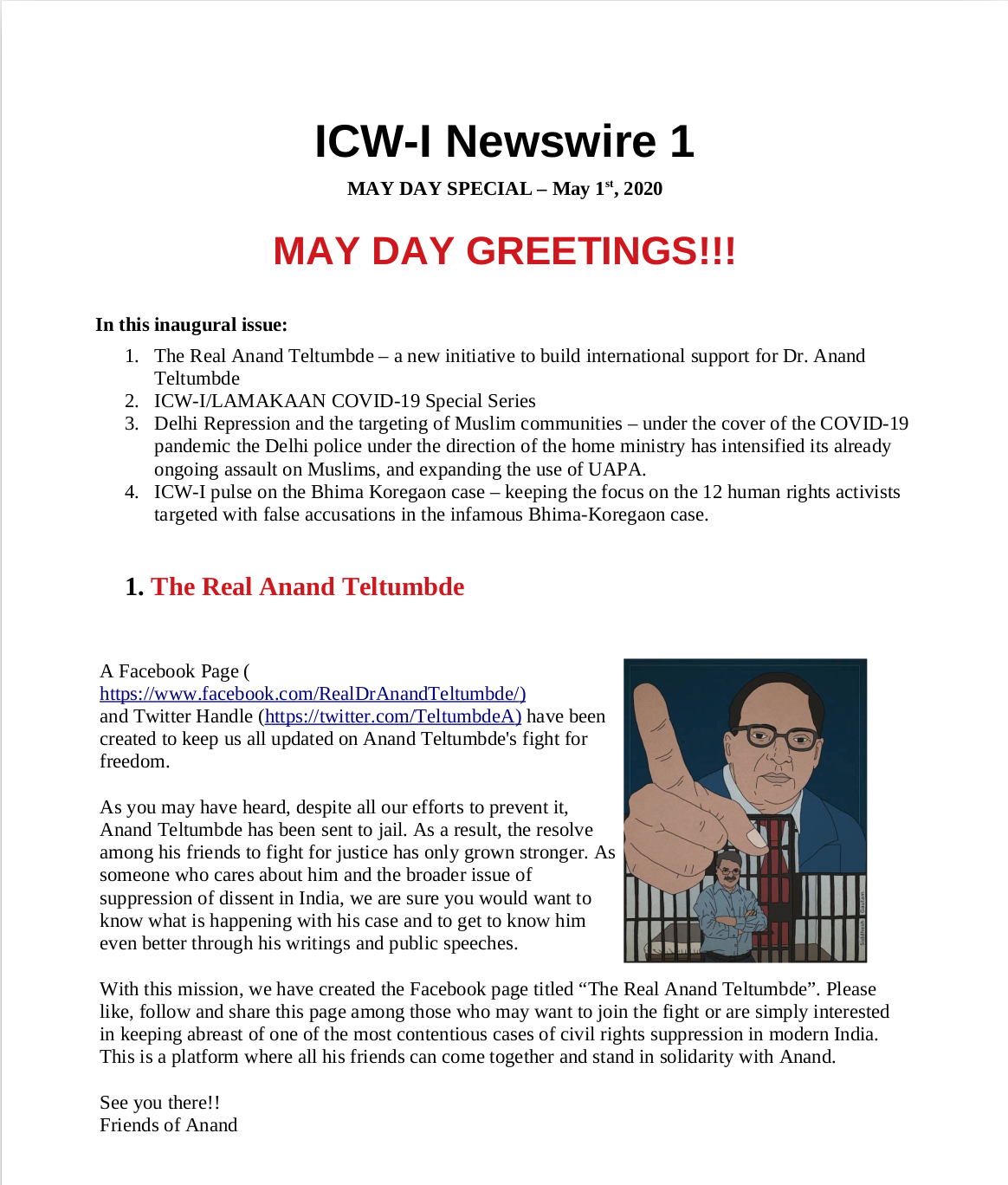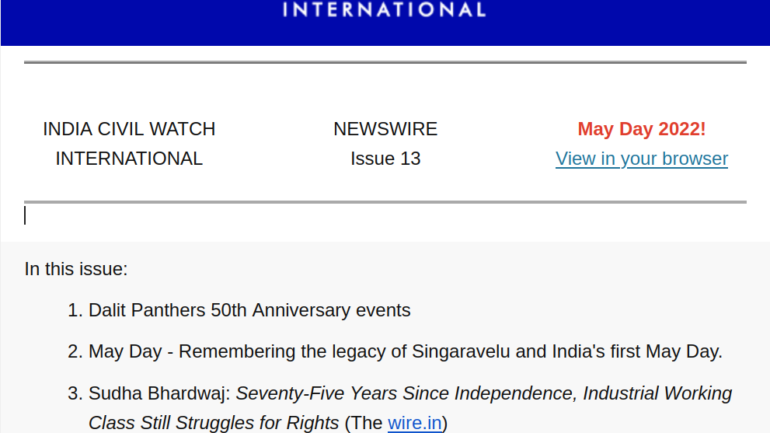Poetry in Dark Times
“In the dark times, will there also be singing?
Yes, there will be singing. About the dark times”
– Bertolt Brecht
Writers, poets, singers and other artists have always responded to the dark times they faced. Brecht wrote poems and plays, Picasso painted, Faiz and N.M. Rashid wrote poems. Their works have distinct flavours and styles, ranging from explicitly political and direct to intensely symbolic and suggestive. Some inspire hope, while others suggest perseverance in the face of adversity. Below is an example of a symbolic and suggestive style of poetry.
Shahryar, the Jnanpith award winning Urdu poet is mostly remembered for his intensely lyrical, sensuous and erotic songs and poems. He became part of the popular imagination with his hit songs for films like Umrao Jaan. Most of his poems are not explicitly political in the traditional sense. Herbert Marcuse maintains, in his “The Aesthetic Dimension”, that the “revolutionary” potential of any art form lies not so much in its content, but rather, in its very ‘aesthetics’. It is the aesthetics which triggers consciousness of beauty, or its absence, of suffering, sadness, and joy. Shahryar’s social and political poems are mostly short, some of them Haiku like: suggestive, terse and loaded with rich, powerful symbols. It is almost as if he wants to shake us up, to make us wonder, think and imagine possibilities of redemption and liberation. An example is his short poem below, in Roman, followed by a very rough translation of my own, for those who do not know Urdu well. I know fully well that much is lost in translation.
Bebasi Ka Aitraaf
Jab darinde jugalo.n se shehr ki jaanib chale the, raat thi
Aur raat bhi kaali bohat thi
Jugnu-on ki fauj un ki raah-bar thi
Saari duniya be-khabar thi
Sabz faslo.n se unhe.h bhi dushmani thi
Sabz faslo.n ki nigehbaani pe lekin koyee aamaada nahi.n tha
Hum, nihatte the, akele the
Humare paas bus aa.nkhe.n thi.n
Aur aa.nkhe.n khilaao.n mei.n lakire.n khe.nchne ke shaghl mei.n masroof thi.n
Confession of Helplessness
When the beasts emerged from the wilderness and headed for the towns, it was a dark night
A very dark night indeed
A swarm of fireflies was escorting them
Across a world that lay unaware
The beasts too nursed a hatred of verdant fields
But there was no one to defend these fields
As for us, we were unarmed, alone,
All we could use were our eyes
And we could do was to stare blankly into space,
And draw imaginary lines.
I realize that you may not read this poem in the same way as I do. That is natural. The images and symbols may evoke different responses in different people. That is what good poetry is supposed to do. I can therefore only describe what I experience and feel when I read these lines. I am struck by its stark images that I associate with our current dark times. The wild beasts running amok, destroying the things that we value. The fireflies, normally the sparks of light in the darkness, aiding and abetting this assault; and we, feeling too powerless and weak to defend ourselves. Could it be that the last lines are mocking us, or challenging us? Should we regard ourselves as weak and powerless, or do we have an alternative, a choice? Maybe our weakness stems from our lack of engagement and involvement, and in organizing ourselves better for opposing the forces of darkness.
Salman Kureishy
This Month in History
In his famous resignation speech made 69 years ago on Sept 27, 1951, Dr. B.R.Ambedkar made the following remark: “To leave inequality between class and class, between sex and sex which is the soul of Hindu society, untouched and to go on passing legislation relating to economic problems is to make a farce of our Constitution and to build a palace on a dung heap.” Ambedkar was referring to the Hindu Code bill. The votaries of Hindutva (at that time) violently opposed it even as they (today) gloat over their passing of the triple talaak bill. Arguably, we are in a much worse situation today. Not only are deep social inequalities intact or worsened (witness the dilution of the Anti-Atrocity Act and an almost daily orgy of violence driven by casteist-patriarchal-communalist hate and contempt for the rule of law and social contract), but also due to the dismantling of many of the economic legislations that had been put into place right after independence to protect workers and the precariats, and other draconian laws such as the UAPA being passed and implemented. The ‘dung heap’ is now a mountain of toxicity.
Balmurli N
Poetry and Resistance
Poet of the Month: Sadaf Rathod
| हम तैयार है वो सलाख़ों में बंद कर जिस्मो को कैद करने चले है आवाज़ें लगता है भूल गए है वो आज़ादी के उन मत वालों को ख़ामोश मौत भी ना कर सकी थी जिन के ख्यालों को कर लो कोशिश कर लो हम भी ज़ज़्बा रखते है आज़ादी का ले आओ अपनी जाफरानी बंदूके शोर मचाओ राष्ट्रवादी का खोलो Fake news की जितनी चाहे WhatsApp यूनिवर्सिटियां या ल्लचालो हमें दिखा कर रंगीन कल की स्टोरियाँ हम भी तैयार है ले कर अपनी आवाज़ें, हिम्मते और बहुत सी फनकारिया सच और उम्मीद की चिंगारियां हम भी तैयार है बदलने आज कि सच्चाइयाँ हम भी तैयार है हम भी तैयार है | We Are Ready They came to imprison our bodies, To silence our voices. Seems like they have forgotten, those freedom fighters…. Who, even death could not silence their thoughts and ideas Try, try, to stop us We also have the same spirit of freedom Bring on your Saffron rifles Chant slogans of your nationalism Open as many WhatsApp universities of Fake News Or try to tempt us With colorful stories of yesteryears We are also ready With our voices, Courage and many different talents, With our truth and flames of hope We are ready To change the truth that we see today We are ready We are ready |
| Social Media to follow: @TeltumbdeA (Twitter), and RealDrAnandTeltumbde (Facebook) |
Pulse on BK-16 and the Police State
With the arrest of the popular student leader Umar Khalid under trumped up charges that he incited the violence that exploded in Delhi earlier this year, the Delhi Police continues its repressive assault. Shockingly the narrative being woven by the police state, in connivance with the Home Ministry and the media is that the very victims of violence are supposedly now arch enemies of society, fomenting violence and provoking destruction. The inarguable fact that it was RSS groups running amok in parts of Delhi, attacking and killing Muslims – and even gloating about it -, with the protection and participation of Delhi Police is now being turned on its head: suddenly the victims of Hindutva mob and police violence are being deliberately painted as devious perpetrators inciting protesters to go berserk. Victims become perpetrators in the eyes of the Hindutva-ideology infused Indian police state.
This is the same play used in turning the Hindutva violence that shook up Bhima Koregaon into a narrative of Dalit and leftist organizers fomenting violence. In the last two months alone BK11 became BK16. Hany Babu was arrested in August, Jyoti Jagtap, Ramesh Gaichor and Sagar Gorkheof Kabir Kala Manch were arrested in September and 83 year old Jesuit priest and beloved social worker Fr. Stan Swamy was arrested on October 1st. All of them have spent their lives fighting for the causes of the oppressed. As Umar Kalid said in his speech before his arrest, the neo-liberal hindutva regime is trying to suppress the voice of the people by suppressing the voices of these freedom fighters.
- Fr. Stan Swamy’s statement before his arrest in Bhima-Koregaon case: https://www.youtube.com/watch?v=K_q77clUazw
- Umar Khalid’s statement before his arrest in Delhi Riots case: https://www.youtube.com/watch?v=fB6z33CX7VM
Breaking the Echo Chambers
“If you support BLM, why don’t you support Ram Mandir?” – a friend of 25 years asks me politely in a whatsapp group of a small group of my friends from college days. These days you hear mind-boggling analogies almost everyday. But you never get used to the sharp pain you feel in your heart when you hear such questions, especially when they come from people you consider to be rational thinkers.
My friend was referring to the ‘Black Lives Matter’ (BLM) movement that brought millions of people onto the streets protesting against racism and police brutality against Black people in the USA. I try to explain that I do not supportRam Mandir for the same reason that I support BLM. But she is educated by wiki, sprinkled with a pinch of nationalism and a heart full of Hindu pride. I almost give up and try to get out of that discussion, though it was a civil discourse. My friend was asking questions but my head was reeling with the blatant connections she was making. I feel overwhelmed when I realize she is now one of the millions blinded by misinformation, while India is in the midst of an undeclared super emergency.
Like you, these days, I am afraid to look at the notification on my phone in the morning – who has been arrested while I was sleeping? How many are raped, lynched, beaten, murdered? My heart starts screaming even before I look at my phone.
Tentacles of NIA are reaching far and wide to charge more human rights defenders as conspirators in the Bhima-Koregaon violence. Prof. K. Satyanarayana and journalist Kurmanath were interrogated by the NIA for their alleged connection to the Bhima-Koregaon case; however, there were interrogated only because they are the sons-in-law of Varavara Rao. And, these are just the names we know; we don’t even know who else was interrogated and who else is being targeted in the Bhima-Koregaon case alone.
Police have been looking to arrest Umar Khalid for years and now they got him under UAPA under the bogus charge of inciting Delhi riots. Sitaram Yechury, Yogendra Yadav, Jayati Ghosh, Apoorvanand, Rahul Roy and hundreds of others including targeted victims of the riots were interrogated or arrested, while the actual instigators are roaming free and instigating more violence.
Truly, these are the times when love is hate, ahimsa is himsa!!!
The rape murder of Manisha Valmiki (I take her name because her name must be etched in our memory as a warrior who fought until the end) and cover up by the U.P. police by burning her body with petrol, while jailing her family in their own homes, barricading them from performing last rites and not even letting them see her face one final time took the level of inhumanity to the extremes. While the accused were not arrested and are even being protected, a journalist trying to cover the case and 3 people accompanying him were arrested under UAPA, for sedition, for conspiring to incite caste violence.
I wish I was still sleeping and that everyday that has passed was another dream nestled into many many folds of a nightmare. Oh! how privileged I am for being in a position to wish away everything into a dream.
I wake up in the middle of most nights, unsettled with a throbbing question: What do I do with this privilege?
About 3 years ago, I had a conversation with my daughter while returning home after meeting few activist friends. She was 9 at the time. She asked me a question, “It is good to meet friends and discuss all the things that you discuss. But don’t you think you are just talking to each other? We need to take these conversations to people who don’t know these things.” While I was reeling in the motherly pride of hearing her say “we need to …”, she continued, “ We should be like Shehla (Rashid) and people like her. They are fighting on the streets.” During those days she used to talk a lot about Shehla, Kanhaiya, Umar and Jignesh. She came to like Carl Sagan because Rohit Vemula liked him. In these three years she came to appreciate even more about the street fighting – from Shaheen Bagh to the farmers’ marches. She came to appreciate the small group conversation as well. We are not alone in trying to gather the broken pieces of our hearts and stand in solidarity with those who are fighting, who are resisting. Some of us feel the exhaustion of protests, slew of statements, small gatherings, webinars etc.,. While much more needs to be done to tackle the neo-liberal hindutva monster, these little things show that we will not be silent in our privilege.
Going back to the Ram Mandir conversation, just when I was feeling exasperated, hope came to me from an unexpected corner. This was from another friend in the group. I especially remember one incident that made me wonder about her devotion to a Hindu god. We were in our 3rd year of undergraduate degree, when we all walked up the steps to visit Tirumala Balaji temple in Andhra Pradesh, India – me for sight-seeing, my friends to see the God. Climbing the steps was fun, but seeing the statue was not. After all the jostling, shoving to see the god, I vowed to my friends that I am never going back into that madness again. While saying that I noticed this friend crying – crying in reverence, in exultation of seeing Balaji’s face even for few seconds. This very friend, when I was feeling the pain of explaining demolition of Babri Masjid does not indicate fighting oppression by Muslims, says to the group: “we luv temples and culture but they [the government] need to take care of human problems first! As simple as that!”
By the way, it is rather a strange story of how this group came to be. We all met in an engineering college hostel. During the first few days while we were still getting to know each other, we performed a skit for the freshers day. It was a comedy skit based on story of Ravana abducting Sita – it was not a mockery but we made it a fun show that used Hindi romantic songs instead of dialogues. I was the narrator of the skit. We became instant celebrities, our seniors called us Terrific Ten and we still call ourselves that. While that little skit was appreciated in those days, I doubt if we would dare to do anything like that in these days. But my friend’s assertion and the civil discourse we had in that small group and the willingness to listen, gave me hope to reach out – to dare to break the echo chambers.
Mamatha
India Civil Watch International
Newswire Archives
Contact us by email: icwi@indiacivilwatch.org
Facebook: https://www.facebook.com/indiacivilwatch
Twitter: @indiacivilwatch



